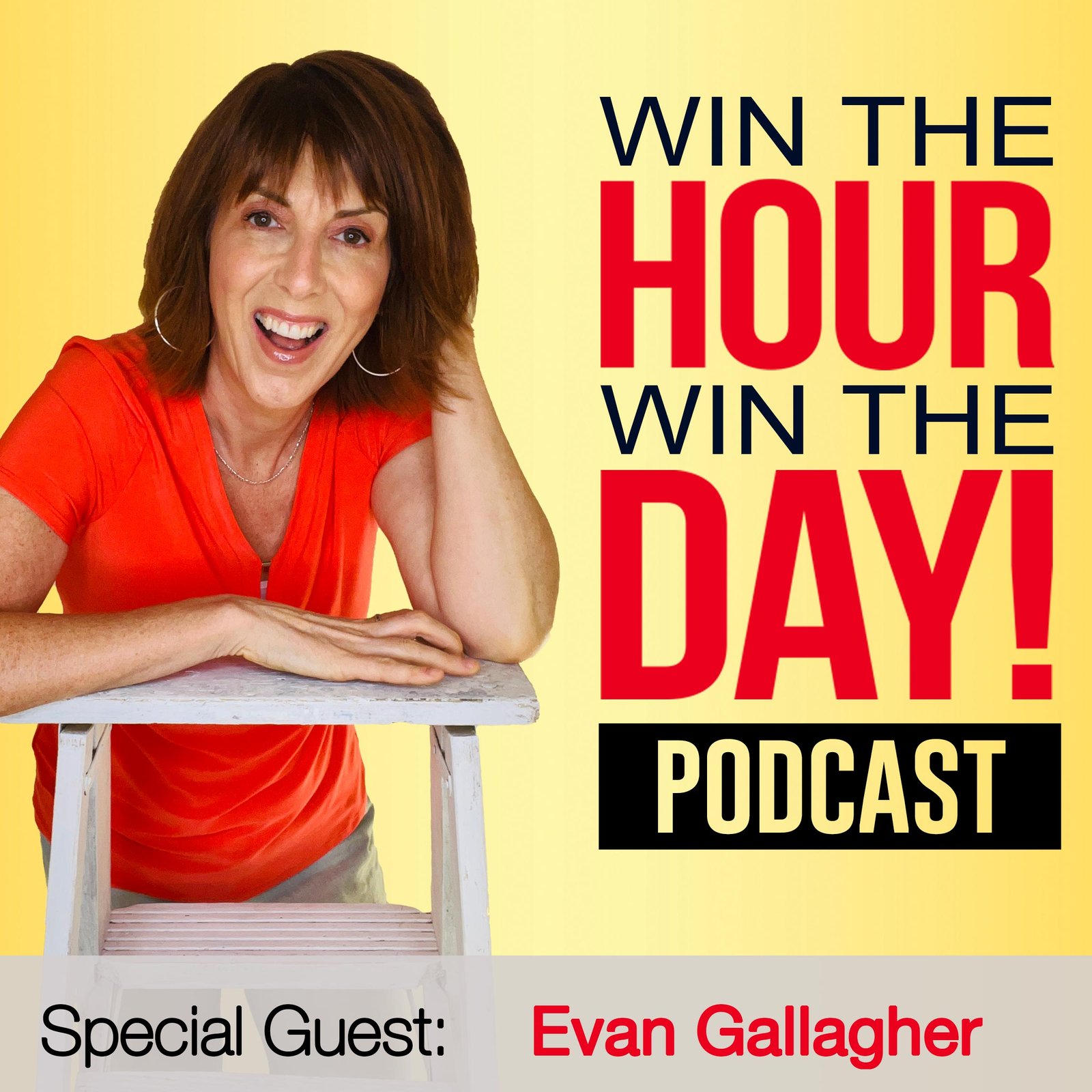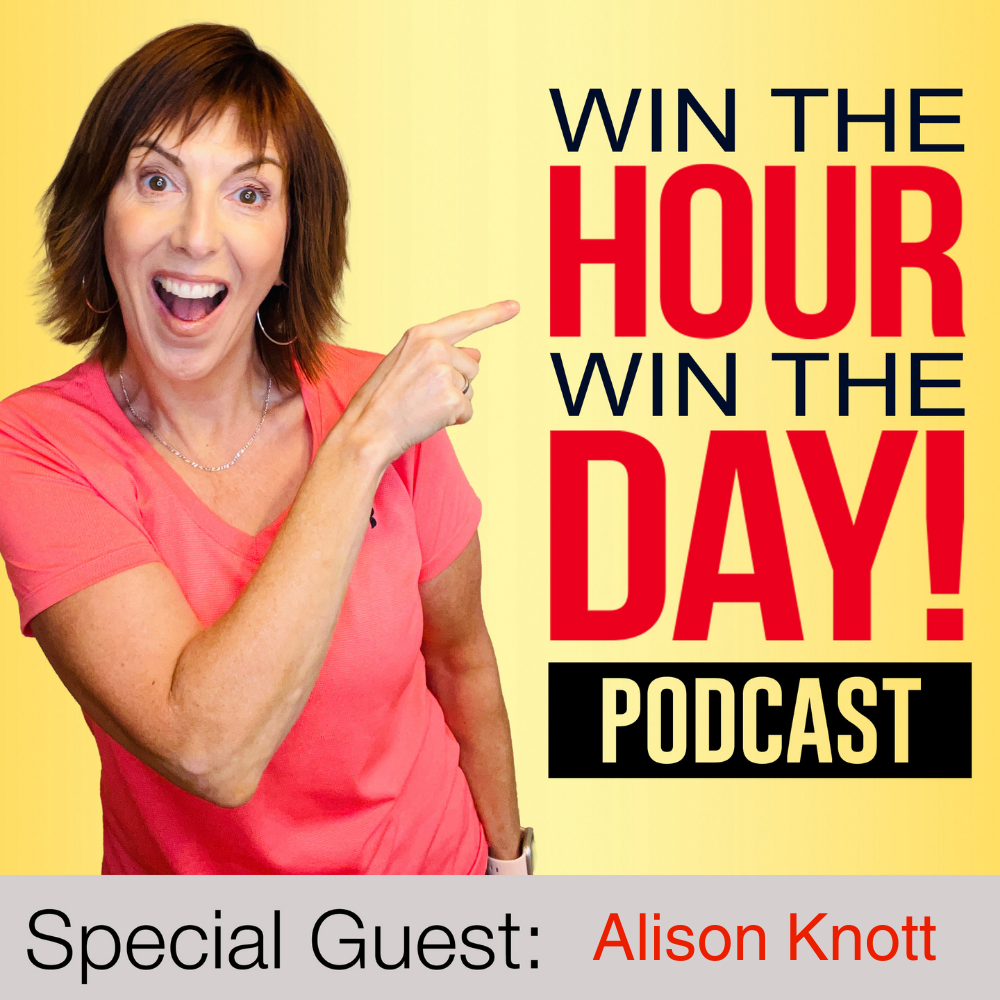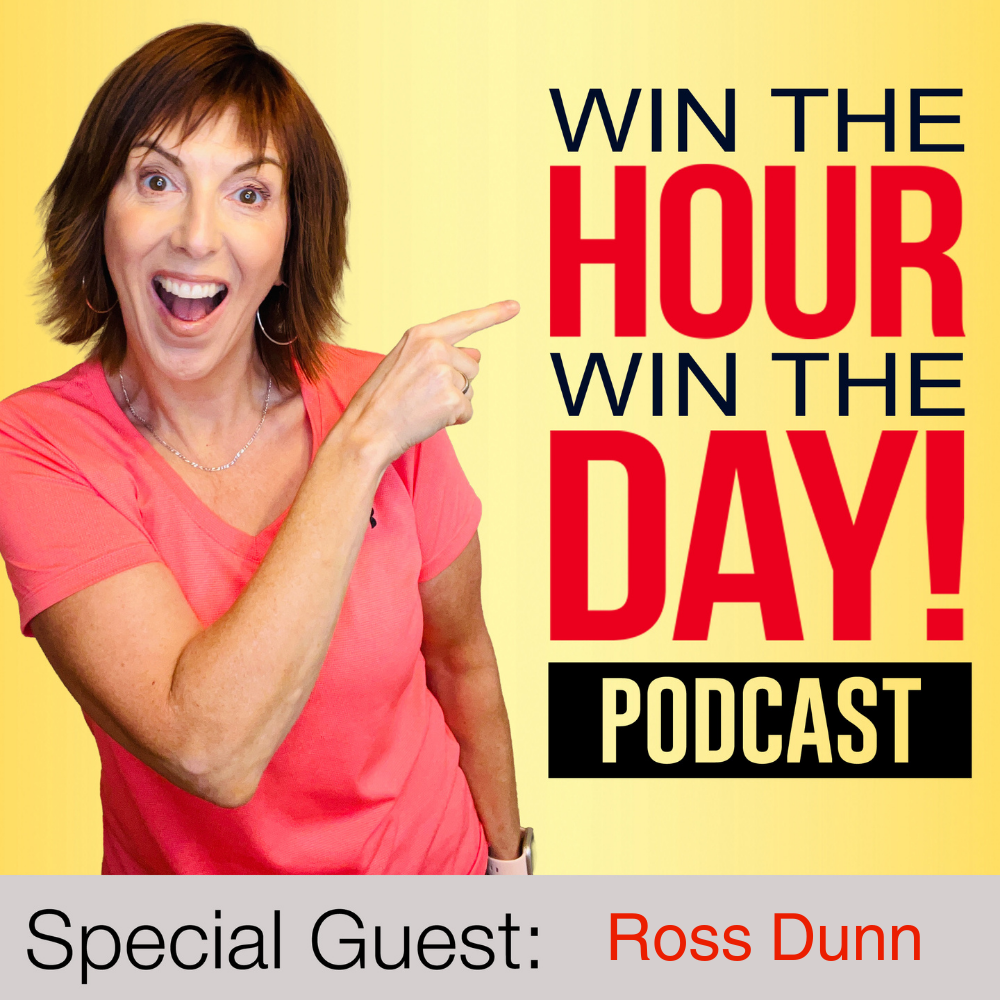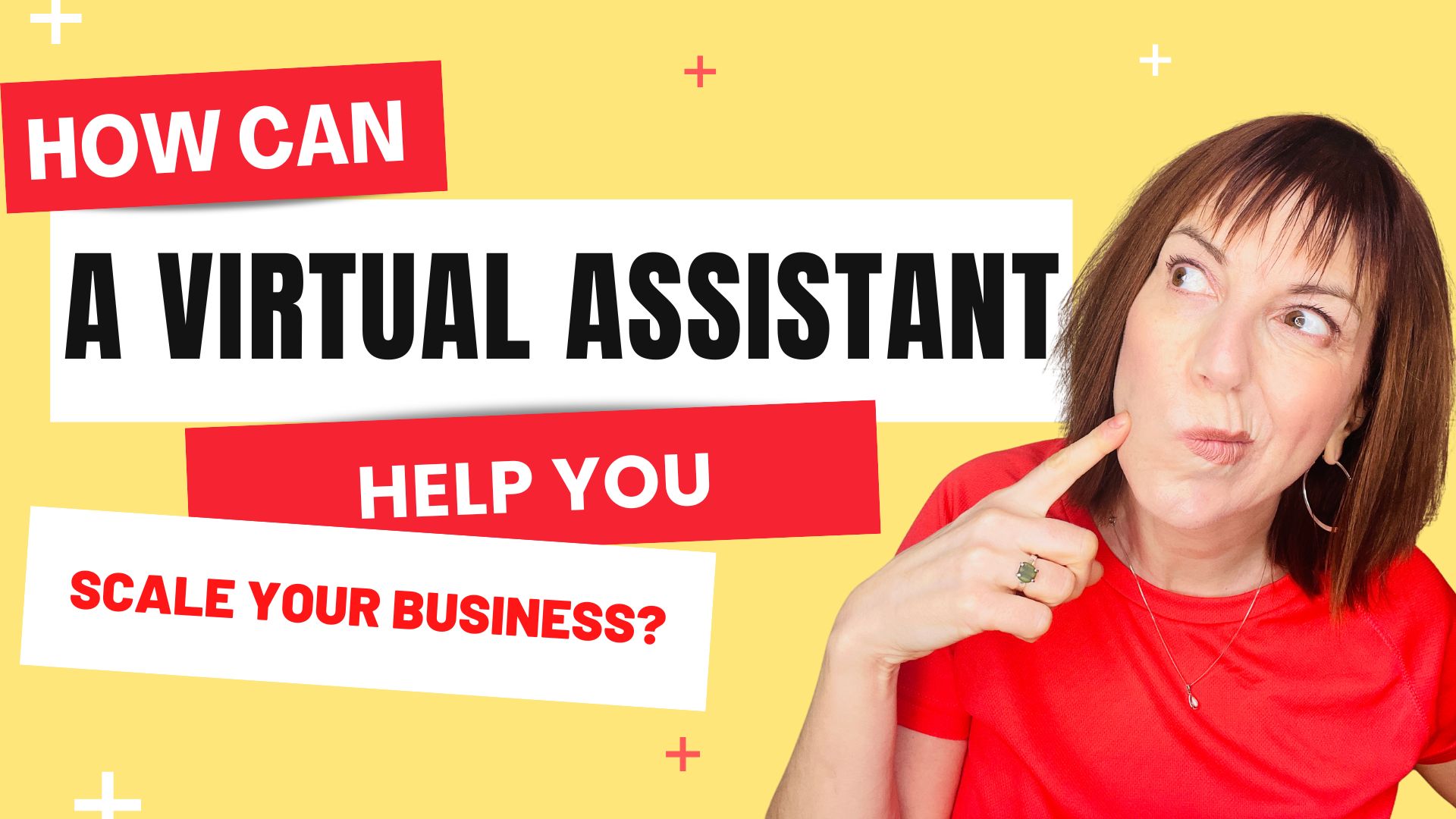Episode Summary
This week’s episode of Win The Hour, Win The Day Podcast is sponsored by Win The Hour, Win The Day’s Signature Coaching Program the Winners Circle. Kris Ward who helps entrepreneurs to stop working so hard interviews, Evan Gallagher.
Evan Gallagher tells all! Listen in as he gives the behind-the-scenes secrets of Win The Hour Win The Day and his struggle with productivity.
You’ll learn
-what finally clicked for him in time management
-how creatives can have more time to create
-the secret to getting more done fast
And MUCH more!!!
Scale Your Business Scorecard
https://bit.ly/WinTheHourWinTheDayScoreCard
Win The Hour, Win The Day! www.winthehourwintheday.com
Podcast: Win The Hour, Win The Day Podcast
Facebook: https://www.facebook.com/winthehourwintheday/
LinkedIn: https://www.linkedin.com/company/win-the-hour-win-the-day-podcast
Win The Hour, Win The Day Winners Circle: https://winthehourwintheday.com/winners-circle-masterclass
Win The Hour Win The Day
https://winthehourwintheday.com
Evan Gallagher Podcast Transcription
[00:00:00] Kris Ward: Hey everyone, welcome to another episode of Win the Hour, Win The Day. And I am your host, Kris Ward. And today we have a very special day. We have Evan Gallagher in the house who I have threatened for years that I would drag him on this show, and it used to be funny and it was a threat, and then it worked out to be a good idea. So I’ll explain who Evan is and why it was a threat. Welcome to the show, Evan.
[00:00:23] Evan Gallagher: Thank you so much.
[00:00:24] Kris Ward: Okay. Alright Evan, I have lost track now. How long have we worked together?
[00:00:29] Evan Gallagher: It’s coming like 10 years I think.
[00:00:31] Kris Ward: Oh no. Okay.
[00:00:33] Evan Gallagher: Yeah. Yeah.
[00:00:34] Kris Ward: Shoot. Really? Oh my gosh. Okay. All right. Evan has been with me through thick and thin and a lot of thick and thin, alright. Why I thought it would be so good to have you on the show, Evan and Evan does, this is not his like jam oh yeah. I can’t wait to be on the show and talk, so I had to do some real convincing, but when you started working with me way back in the beginning, we had some struggles around your time management, and I said to you more than once, Evan, I don’t know if you’re gonna make the climb.
[00:01:05] Like we gotta get this together. This is serious. So I thought someone who went through a journey and had to figure it out, even on my team and I’m teaching the best I can and here I am, dealing with clients and teaching them the same thing. And I really did want you to make the climb and I thought you’re a great investment, but I, If I had to cut you loose, I was going to, but it was painful at times, but you really did come out the other side of it, I think so much better.
[00:01:29] Obviously, you’re still here, so I thought it would be really interesting to hear some insights from you about time blocking, about systems and processes and what that meant, working with a crazy person like me and how it improved your business or any aspect of your life. So where do you wanna start?
[00:01:45] Evan Gallagher: Yeah. So it’s saying that I had some struggles and stuff is probably the nicest way you could have put it. It was pretty much going from, just a I think I had the notepad. We’d have our meetings in the morning and I’d write down like a few things and on this one pad of paper and the next day would be a next piece of paper and all that kind of stuff. So that was about as far organizing as that I…
[00:02:08] Kris Ward: Okay, hold on. In fairness, that’s what most people call to-do list. So although it’s a bad idea, a lot of people are still doing that.
[00:02:16] Evan Gallagher: Sure. Yeah. Yeah. But yeah, so it’s we basically, I remember you mentioning about it introducing me to Google Calendar and I saw a bunch of colored blocks and, just oh, okay.
[00:02:26] So I guess this has something to do with the notes I’ve been taking. And yeah, so it really was just where it became like the big thing was just like doing it because it was helpful to me and then doing it just because I know that you wanted it to get done and stuff. That was like one of the big parts with me when it finally clicked in when we were having our morning meetings and stuff I actually, there was a point where I was like, Hey, why don’t I, instead of writing this on a piece of paper, why don’t I just start putting it on my calendar, it’ll be there for me when I get to it.
[00:02:59] And that’s how it all started out, was just like, Hey, let’s take away one process and then having to, put it on something else and then let’s put it right on the calendar while it’s still fresh. And then, that and I realized, oh, this would look good because I think back then again, to say that I was having struggles with the calendar, I remember you would be, you’d ask me, can I see your calendar? And…
[00:03:20] Kris Ward: Oh yeah, sorry, hold on. That’s why I forgot about that. I would give you calendar audits and I’d say, okay, because here’s the thing, and you did something that especially a lot of entrepreneurs do even working with me, you started as my graphic designer, now you’re got a head of a department, you’re the creative director and you’re doing amazing.
[00:03:38] But as a graphic designer, you get excited about new projects. So the newest project, you’re like, oh, let me dive in and take a look at that. And then all of a sudden losing interest or perspective on the other projects. So the newest thing, one. And I’d say to you, look Evan, if the goal is for us to have a roaring successful business and we’ve, let’s say have five clients now what happens when we have 50?
[00:03:58] You can’t just give the newest attention to the new project. And so I was teaching you that your calendar is your time bank account. And that I always explain it. It’s if you have a car payment that comes out every month, you don’t say I won’t count it. Because it comes out every month. You say, oh my gosh, the money’s still gone.
[00:04:15] And so you weren’t putting things on your calendar that you were doing every day. So you might come in thinking you had eight hours, but in fact you only had five, so you weren’t using your calendar as a time bank account. But you’re right. I would ask to see your calendar in the middle of meetings, and you would look pale and you’d be like it’s not a hundred percent ready today.
[00:04:33] I’ll show you tomorrow. I’m like that’s not the name though. I’m not asking you to write an essay for me. Let me see your blueprint for success. Yeah. So yes, you would get those calendar audits. Yeah. I forgot about that.
[00:04:44] Evan Gallagher: Yeah. And another thing that actually was a big turning point for the calendar and time blocking was I would, I’d get a task and make it just a standard like hour length, put my notes in there.
[00:04:55] And it took me a long time to realize, just because I’m putting things on my calendar, you need to be following the calendar based on how long things are gonna be taking. So me putting, I would be doing a logo that I was about to to do. And I put that as an hour it does not take an hour to do research for a logo.
[00:05:12] So it’s like things like that check. I would be, things getting back to people would just be a standard hour block. At the beginning of the day, my calendar looked very impressive. I was a very important person, until like noon when I finished everything on my list. And it’s because it’s just, I had so that was a big thing is being is not just putting it on the calendar, but actually like thinking and using a good amount of, like an honest amount of time.
[00:05:36] And if you don’t, and that was one of the things like if you don’t finish it, you don’t just keep working on especially when you’re doing a creative job like graphic design or branding you don’t just keep working on it until it’s done. That doesn’t work. Especially the whole thing is like fresh eyes.
[00:05:53] Yeah. It’s just massively important. So if I, gave myself a couple hours to finish a logo, maybe I ‘ve had a few examples. We like, we tend to give around nine different samples for a logo. If after two hours I only had three or four, I wouldn’t just keep going at it obviously.
[00:06:10] I needed like a creative break, so then I’d work on something else, see what was the next thing that I had to do. And then, the next, maybe tomorrow or the next day or I’d schedule in a little bit of research, get that creative juices flowing. And then tackle it again on another day.
[00:06:25] Kris Ward: Okay, so let me unpack that. So first of all, in case you’re confused, he’s, as he said, 10 years ago, I didn’t know 10 years had passed, but 10 years ago. So we were doing a lot more marketing and branding type stuff then, and it has evolved very much to the win the hour stuff based on our story and how everything happened.
[00:06:40] So he was doing a lot more of that back then that we don’t do now. But you bring up a really important point, even if you could Evan, I wouldn’t encourage somebody to say, oh, I’m gonna work on whatever Michael for three hours this afternoon. Because that’s not how the human brain is set up. So you might then do research or the outline for book hour one and then tomorrow do something else for hour two.
[00:07:03] So that’s another mistake that people make and you bring up a solid point, like you’d have these things on the calendar, like a memo board, but they didn’t mean anything. And then secondly, but I do wanna pin that down and say, but another mistake people make is than just giving too much time. They should be in one hour increments and even if it’s a bigger project, break down steps of that project.
[00:07:23] Otherwise, you don’t know when you’re off course. Yeah. If you say, I’m gonna take three hours to write, I don’t know an ebook, that’s gonna be 25 pages. You don’t know if you don’t break it down that, oh, okay. The outline normally takes me a half hour, and then this time it took me an hour, or the first draft normally takes me. Unless you break it down, you won’t see what to build on the next time. Make sense?
[00:07:45] Evan Gallagher: Yeah.
[00:07:46] Kris Ward: Okay. So you learned a lot from… yeah. I totally forgot the time audits. Okay, so I did that. That sounds like me. Then I think your next step of growth is when we start to lean more into systems and processes and what our clients call in the Winner’s Circle, the Super Toolkits..
[00:08:04] Evan Gallagher: Yeah.
[00:08:05] Kris Ward: And I know your favorite story about that is I think it was the first day you worked with me. Was that correct? First week?
[00:08:12] Evan Gallagher: Yeah. It was it was the first like outing that we had gone.
[00:08:16] Kris Ward: Okay. In the beginning. Yeah.
[00:08:17] Evan Gallagher: Yeah. So..
[00:08:18] Kris Ward: We were doing a marketing campaign and we were showing up there and we were working on a photo shoot with doing a bigger project.
[00:08:27] Evan Gallagher: Okay. Yeah. Yeah we had our Super Toolkits and back then there were a printed pieces piece of paper where we give all the check marks too and mostly it was just getting everything ready and packed. We had to make sure they had all the photo cards. Make sure that laptop, the cord for the laptop bag, everything very documented and such.
[00:08:47] And I remember it, so maybe it was, it might have even been like the second time that we had done noting and my confidence of, yeah, I got this, or whatever, I’d seen these history logs and or sorry, the super toolkits and I knew that the general process of grabbing, all the inventory was I think in the closet and stuff.
[00:09:06] So I started loading up the vehicle and anyway, it was it wasn’t until we got to the site. Luckily it wasn’t super far away. I think it was only about like 10 or 50 minutes away from the office. Yeah. And I realized that I forgot one of the lights. And it just so happens that it may or may not have been on the super toolkit that I just grazed over.
[00:09:28] And so I maybe immediately was like, I’m so sorry, I have to go get it. And you’re like, yeah, no, that, that’s fine. It’s not far. We’ll just go get it. And, we had a little bit of time while we get there early before the client was ready to go. So I was able to speed back to the office, grab the light, and I remember walking with the light and it’s one of those big like studio lights.
[00:09:47] And anyway, I just grabbed it by the main shack or like the main light console area and the handle just swung around and sheared off the top of the light bulb. And I remember just standing there looking at like the shirts of light light bulb and wondering how best to just say that I appreciate the opportunity working with you, but clearly I’m gonna have to find employment elsewhere.
[00:10:15] And yeah, just being, and it all is, I remember, you just laughed about it and it’s it’s fine, all that kind of, but I remember if there’s ever an instance where just taking the two extra seconds to make sure that you’re following a system that had already been established and like the amount of headaches I would’ve avoided.
[00:10:38] And the sheer terror of smashing and not ex not inexpensive light and having the shards everywhere and on a day of a photo shoot and stuff, it was, there was a lot that could have been avoided. Again, but the simple process.
[00:10:53] Kris Ward: So I think what you’re saying is back again to your previous example okay, fine. First you started to amuse me with the calendar and fill in stuff and it looked pretty, but then it wasn’t a road back to anything. Cause you’re just putting stuff up there to say it’s up there. And then I was giving you, we had the systems and processes were not as established as they are today, but they’re still pretty efficient and better than most companies.
[00:11:12] Okay. Because this was almost 10 years ago now. And so you skimmed over them and you’re like, okay, great. Yeah. So you weren’t leaning into them as effectively as you could. And because you were rushed, then you missed a step and then you become more rushed cuz you now realize you missed a step. Which is a really great example because so many entrepreneurs do this.
[00:11:31] It’s oh my gosh, okay great. I think I can just fly by the seat of my pants. Don’t worry. I can fake it. I know my business. And then that adrenaline of stress, once you miss things, you start going in a different direction. So now you’re stressed out by the fact that you skipped something cuz you wouldn’t have broken that light if we were just packing things normally calmly…
[00:11:49] Evan Gallagher: A hundred percent.
[00:11:50] Kris Ward: Following the list. So now you’re back at the office by yourself looking at broken glass all over it going, I don’t even know how important this light is, but it was important enough for me to come back. So do I leave my note here that I thank you for hiring me, or do I go back and whatever?
[00:12:06] I think kudos to me. You’re right. I just what am I gonna do, yell at somebody for breaking a light? Like stuff happened. So all I knew is I had to figure out how to work, how we were gonna deal without it. But you’re right, that wouldn’t have happened had you di taken a calmer, more systematic approach.
[00:12:23] Evan Gallagher: Yeah. Yeah. And it’s, it is a fine example of how something so small. Yeah, just checking the Super Super Toolkit and it escalates. I didn’t, I had to go back to grab, that’s another 25 minutes that it took me to get back to the office. Took me like a minute to clean up all the glass and then 25 minutes to go back to the shoot without a light and then to tell you the bad news.
[00:12:45] So it’s, yeah. yeah. It’s just something small that would’ve just saved a whole, and yeah, a whole lot of heartache and stress and yeah, I think that’s pretty much I think I, after that was a good wake up call. That’s, I was pretty devoted to the Super Toolkits after that.
[00:13:01] Kris Ward: I think though too, it is worth mentioning cuz I know we’ve had discussions about this. The other thing that’s really seductive when you have bigger projects, and sometimes we would have bigger ambitions that are projects that are gonna take like a marketing campaign that might potentially take 10 weeks.
[00:13:18] And what I was saying to you is listen, you have to follow the Super Toolkit and you have to be able to break down on that and your calendar, how long each step takes us.
[00:13:25] Because let’s say you’re a company that designs webpages, something big like that. And then you’ve got a client and they expect you to have it all done in three months. But when you’re not using your calendars or time bank account, or you’re not using Super Toolkits, you don’t know at week three or four, are you on schedule?
[00:13:43] Are you two weeks behind? Like you’ll just know at the end of that journey. Oh my gosh, it’s two weeks. It’s due. And we have so much left to do. And the adrenaline and the mistakes and everything you just spoke to. So I think that’s another thing with the super toolkits is you cannot improve what you don’t measure.
[00:13:58] And you should always be able to say, this is what we did and here’s how we follow. And then we, as we always say, we cue them, create, use, and edit them so they get more and more effective. Because there should be one of the things I always say is businesses not run a memory, right? I say that all the time.
[00:14:13] Is somebody that has been with me the longest. I guess what has this meant to, what does it feel like to have gone through this journey? Or what do you, what’s, what is your inside thought or dialogue now about the calendar, about the super toolkits, about all the things that we do?
[00:14:32] Evan Gallagher: Yeah, so it’s I, if I could, I’ve had a time machine, I could go back to young, 10 year old 10 year younger Evan, I probably just mentioned embrace the change more. It really does make and again, for me it was. . I don’t know why. It just it took a while to click in with, especially with the calendar management again the audits and such, but it took a while, but as soon as that clicked in, and again, as soon as the use of super toolkits clicked in and all that, it’s just, it’s so much easier not having to again.
[00:15:08] Businesses not run on memory. And that was I didn’t have to, it goes all the way back to that that notepad of paper that I used to write all the notes. I’d be thinking about, oh, okay, first off, it’s not a portable solution. So I couldn’t be, if I was away from my desk, I had no idea if I had checked off all of those things on the notepad. But again, it’s not.
[00:15:28] Kris Ward: You couldn’t reassign it to somebody else. Like you can’t know exactly too. Let me jump in here too. I think one of the things that you do really well, which I’m always telling people and they think it’s the most ridiculous thing I say, is you should not be wasting that first hour in the morning on emails cuz you get decision fatigue, attention residue.
[00:15:46] That’s the work that’s the most important and requires the most focus. So you are very good about that. You do not come in fear-based, skip through your emails and see if there’s any problems that first hour and send yourself into crazy mode. And I think most people would be surprised that’s something you can do. And it supports a very successful day is not starting with your emails.
[00:16:04] Evan Gallagher: Yeah, it’s I have it right now as any work that either required fresh eyes for a designing process or anything like that. As soon as I get in, I have my novelty sized coffee and I’m good to go. Just keep my head down and just, cuz that’s where I find that some of my most creative work is actually done.
[00:16:23] In the morning when I’m just again, fresh to start the day. And it’s usually around I guess around 11 o’clock when I start going through the emails, cuz that’s once I have everything completed from the previous day, then it’s time I can start, mapping out what I’m doing today and for the rest of the week.
[00:16:38] Kris Ward: And speaking of emails, another thing that I was always encouraging you to do, and I think you do a great job now too, is I always tell you that emails are to confirm information, not to introduce new information, right? And that when you’re dealing with a team or anything like that, you should be sending, we have scrums, or you send them a Loom video, quick screen capture, not be writing of these long emails that get confusing and they write back and all that stuff.
[00:17:01] So you now. I was all over you and now you’re managing a team and you’re doing it with great leadership and great grace, and I think it’s all these things that you have mastered.
[00:17:13] Evan Gallagher: Thank you. Yeah, I was gonna say, just remembering the I like to think I’m a pretty good writer when it comes to emails and I would have thousand word emails.
[00:17:22] Oh yeah. It was like they could have been small novels and very well written, I must say. But again that was another thing. It’s just okay, if you have all this, do you need to do a loom? And I was, ah, so I had to talk to people I have to socialize and stuff. . Yeah it’s funny now that I have more responsive and my emails have gotten shorter and shorter.
[00:17:42] Yeah. Sometimes it’s just to our web developer, it’s just a loom. And if you have any questions, reach me on Skype. And that’s it. It is just like that’s… yes,
[00:17:51] Kris Ward: You are a good writer and your emails were wonderful, but I was like, they’re so long, and there was so much information that you’d have somebody’d have to read it twice, and I’d be like, listen.
[00:18:01] And also a – it was a waste of time while you wrote these beautiful pieces of art out, and then two people can tell a lot more by your voice. Hey, can you just change this color to a darker blue? Then when you get that in an email, there could be reading in a tone that says, can you not just change this to a darker blue?
[00:18:17] Like it can totally change everything. So that was another thing. I’m like, this is wonderful. This is beautiful, Evan, but why don’t you just send them a 15 second loom and not overwhelm them with all this information? So yeah, it was tweaking that as well. I think it’s interesting too, as we always talk about life happens.
[00:18:35] And you know what? It’s really funny, I don’t know why this came to my mind, but with the super toolkits, I don’t think I’ve ever talked about this here before. After when my husband passed away and I came, was coming back to work and I said to you one day like, cuz you just, your brain is empty, right?
[00:18:52] And you would tell me something and I would like, I have no memory of that cuz it was just, shock. Like people in grief often they’ll find like their keys are in the microwave or something like that. And I said, you have to treat me like an acquired brain injury person. I just can’t remember from day to day.
[00:19:06] And so I followed my own super toolkit. As if they were written like some movie, like to a future self that was rescuing me. So I was following them because I wouldn’t have known how to do the job. I’d come back and just follow these steps cuz I was forgetting things like that were like, I drove to a friend’s house that I’d been a thousand times and I pulled in like to the court and I couldn’t remember which house was hers.
[00:19:28] So the super toolkits helped me through that as well and on a much positive note, you are going through a life change now where you’ve become a new dad, and the irony of that was, I have never seen a child that’s brought into this earth that was more organized before this kid showed up, it was just like spreadsheets and everything was laid out.
[00:19:50] Yep. I mean everything, the socks and, oh my gosh. So you took everything that you’d ever learned here and you turned it into this empire, like this child will show up and need for nothing. And it was very interesting too to me to see that now transfer over into your personal life.
[00:20:07] Evan Gallagher: Yeah. As a again, like the… as soon as we found out that we were finally having a child, we’d been trying for 10 years. And so it was when we finally, got that miracle news and it was again, I had just brought out the spreadsheet and I was like, okay, so this is, these are all the things that we need. These are all, I think I had.
[00:20:28] Maybe about four different tabs for the things that we needed to get the nursery done. The had one for all of the hand-me-downs. Luckily it just turns out that most of my friends had a bunch of newborn hand-me-downs that they’re looking to find a home for. So I had that all detailed out.
[00:20:44] It was that spreadsheet again. Yeah, it was about an, it was an an empire for sure of just information
[00:20:50] Kris Ward: And your calendar when you’re painting the room with strategy for putting a new flooring. Like you had everything on you used every aspect of this and it, and, but it also too then made this part more enjoyable.
[00:21:03] Something you could look forward to it, it wasn’t stress of anything like that. So you really did, you’ll, it took me 10 years, but you leaned into it. .
[00:21:11] Evan Gallagher: Exactly. The biggest takeaway is that we got everything prepared and it’s, I know that nine months seems like a long time actually, we found out, while while the misses was midway through our first trimester, so we maybe had seven months or so, and but in seven months we got everything done.
[00:21:30] And again, it seems like it’s a lot of time, but it goes so quickly. And I know everyone says, oh, like it’ll fly by. It does, especially when you’re trying to completely change your life and your routine and stuff, and prep for a wee one. So yeah, it’s been that whole thing was really helpful. For sure.
[00:21:49] Kris Ward: So in these closing moments, what would you say, what’s your biggest takeaway from the transformation that you went through and we’re still, we’re all still improving cuz we have bigger and bigger ambitions for the company. So the hill you had to climb the first year or so, which was difficult.
[00:22:03] We’re so far removed from that, but I am always pushing you saying, look we have this next ambition, we gotta find more time. So we have to improve the super toolkit. We have to improve our, we’re always improving it, like a, an athlete maybe. They’re always chasing numbers.
[00:22:16] If you’re the track star in high school, but you wanna get to the Olympics, you gotta improve your numbers, right? So we’re always looking at that. So for somebody that, this still sounds a little I don’t know, I gotta check my emails first thing in the morning, and I don’t know how I’m a creative, so I can’t limit my calendar. What would be your advice to them?
[00:22:32] Evan Gallagher: Is again, the same thing I would say to my past self is really just embrace the lessons. Embrace change. You especially, I find that creative people are usually stuck in their own kind of devices. This works for me, this is like my process.
[00:22:48] And that’s fine that, but I’m saying I’m from a creative to another. It, it is a lot easier and it’s less. And it gives you more time to focus on what you love to do, right? When we’re designing just for example, when we’re designing big marketing campaigns and we are doing several of them at the same time.
[00:23:06] And yeah, it’s my older or younger self would’ve just been like, I’ll focus on this one for eight hours and I’ll focus on this one for you. And you just get so overwhelmed and sometimes you can’t, again, life happens. You might not have the time to spend a whole thing or whole day working on it the next day.
[00:23:25] So if you really compartmentalize your tasks, stay on top of it and then just don’t do it to, actually follow it to the for use tasks. That was a massive thing as well on the calendar. Not just, blocking in for time, but for things that take less than, 10 or 50 minutes.
[00:23:42] Kris Ward: Yeah. So let me clarify, just so it doesn’t get overwhelming, cuz I’m not a huge fan of these task things, but what I think what you’re saying is, look, if I something that isn’t gonna take an hour, like I have to call a client about this or I have to call about that. Yeah. Then you know what people put on the, like you said in the beginning, put it on the calendar for an hour.
[00:23:58] It’s not gonna take an hour. So you may have in there phone calls and emails will take an hour and then here’s my list of phone calls I need to make and then I’ll dive into the email. So I think being mindful of that is really important too, not just making the calendar look pretty
[00:24:11] Evan Gallagher: Yeah, exactly.
[00:24:12] Kris Ward: Awesome. Evan. I used to terrorize. You say, we’ll have you on the show and now I don’t know what. I’ll terrorize you next. So this is the part we always tell the audience, Hey, where can we find more of your brilliance? But if you’re looking for Evan, reach out to me and I’ll connect you.
[00:24:25] Evan Gallagher: There you go.
[00:24:27] Kris Ward: Alright. Thank you Evan. We appreciate you and everyone else will see you in the next episode.
[00:24:31] Evan Gallagher: Take care.










